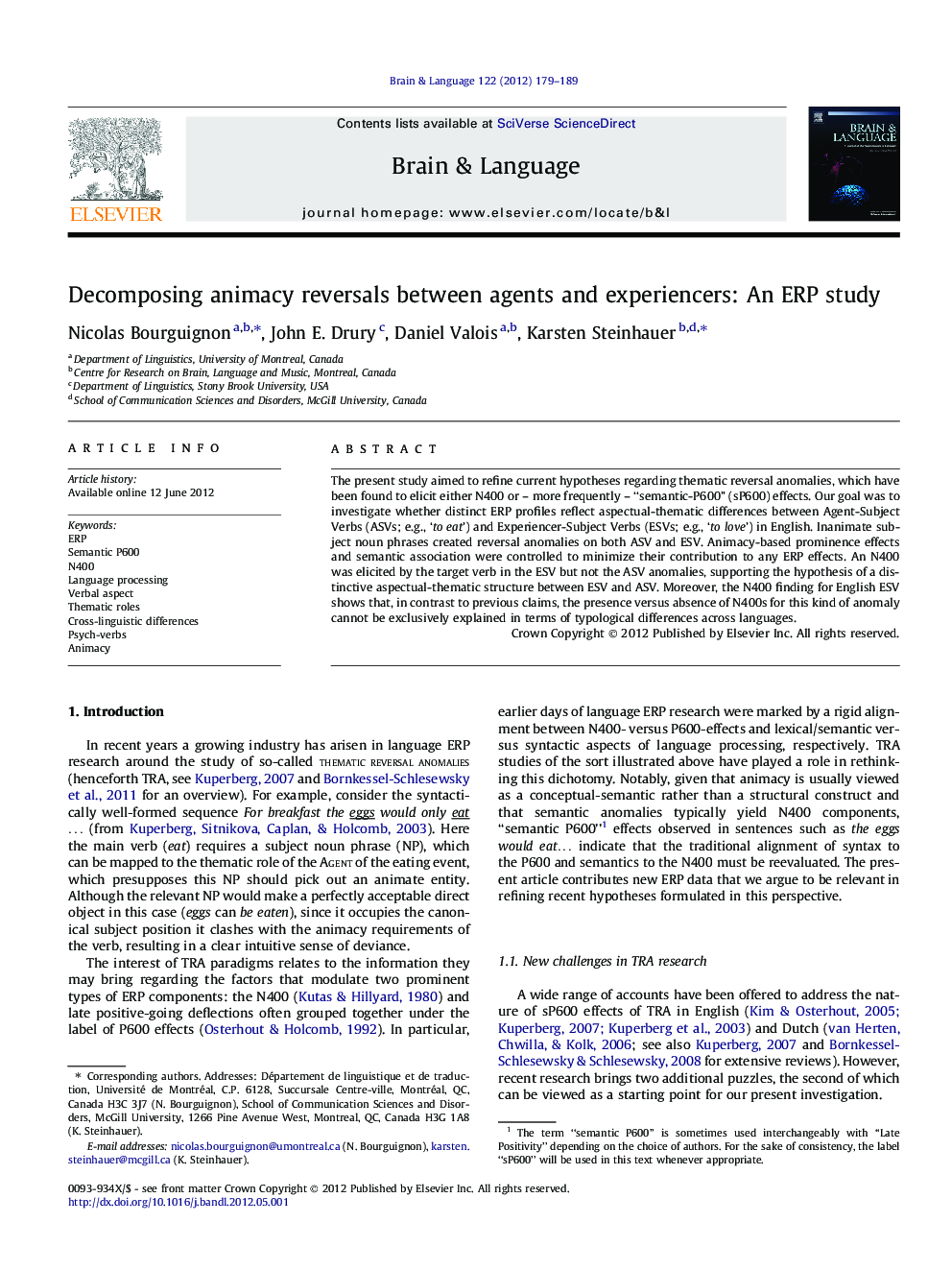| کد مقاله | کد نشریه | سال انتشار | مقاله انگلیسی | نسخه تمام متن |
|---|---|---|---|---|
| 925418 | 921490 | 2012 | 11 صفحه PDF | دانلود رایگان |

The present study aimed to refine current hypotheses regarding thematic reversal anomalies, which have been found to elicit either N400 or – more frequently – “semantic-P600” (sP600) effects. Our goal was to investigate whether distinct ERP profiles reflect aspectual-thematic differences between Agent-Subject Verbs (ASVs; e.g., ‘to eat’) and Experiencer-Subject Verbs (ESVs; e.g., ‘to love’) in English. Inanimate subject noun phrases created reversal anomalies on both ASV and ESV. Animacy-based prominence effects and semantic association were controlled to minimize their contribution to any ERP effects. An N400 was elicited by the target verb in the ESV but not the ASV anomalies, supporting the hypothesis of a distinctive aspectual-thematic structure between ESV and ASV. Moreover, the N400 finding for English ESV shows that, in contrast to previous claims, the presence versus absence of N400s for this kind of anomaly cannot be exclusively explained in terms of typological differences across languages.
► Prominence-related N400 on sentence initial inanimate Subjects.
► N400 in Experiencer-Subject versus Agent-Subject animacy reversals.
► P600 effect in both Experiencer-Subject and Agent-Subject sentences.
► Distinct ERP effects most likely elicited by aspectual and thematic differences.
► Relevance in connection to the semantic P600 debate.
Journal: Brain and Language - Volume 122, Issue 3, September 2012, Pages 179–189